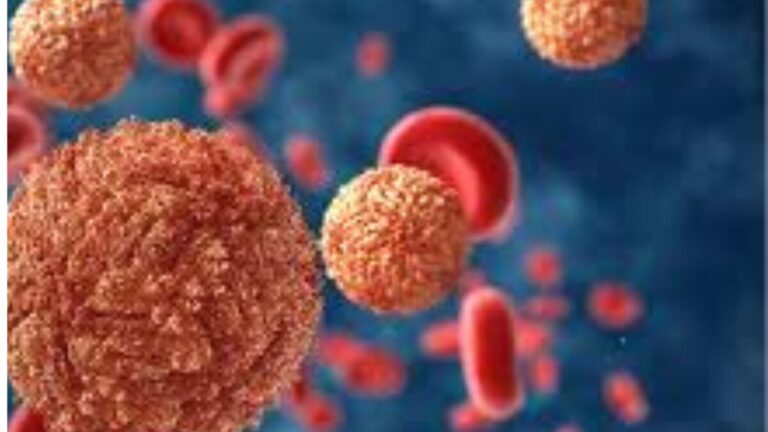Introduction
Dengue virus is a developing situation, inflicting large struggles throughout continents, from Asia and Latin America to Africa. Transmitted through the use of Aedes mosquitoes, dengue infections surge every year, affecting hundreds of masses and straining healthcare systems globally. The virus, as soon as constrained to tropical regions, now poses a chance in temperate zones because of global warming and accelerated travel. Understanding dengue, its signs, remedies, and preventive measures is important as international populations work together to fight its unfold. Let’s find out the worldwide impact of the dengue virus and its urgent hazard to public fitness.
What is Dengue Virus?
Dengue virus, a member of the Flavivirus family, causes an immoderate flu-like contamination to unfold via mosquito bites. Four traces of the dengue virus exist—DENV-1, DENV-2, DENV-3, and DENV-4—making repeated infections commonplace. Each contamination will increase the risk of developing intense dengue, a in all likelihood lethal condition characterised via the use of bleeding and organ impairment. Understanding the strains is important because it affects each vaccine improvement and remedy technique.
How is Dengue Virus Transmitted?
The Aedes aegypti and Aedes albopictus mosquitoes are primary vendors of dengue virus, breeding in stagnant water assets. Mosquitoes wearing the virus bite human beings, injecting the virus right away into the bloodstream. Rising temperatures and urbanization are growing mosquito populations, developing ideal situations for dengue virus transmission. Furthermore, as infected vacationers drift at some stage in international locations, they, by means of coincidence, make contributions to the virus’s unfold.
Symptoms of Dengue Fever
Dengue signs and signs and symptoms vary extensively, starting from slight to excessive, and frequently appear four to 10 days after infection. Common signs and signs and symptoms include immoderate fever, excessive headache, muscle pain, and fatigue. In intense instances, signs and symptoms and signs enlarge to vomiting, trouble respiration, and bleeding from the nose or gums. Timely reputation of symptoms and fast clinical intervention are vital in stopping complications. Severe dengue can result in surprise, organ damage, and, in excessive times, loss of life.
Global Spread and Epidemiology of Dengue
Dengue instances have elevated thirty-fold inside the past 50 years, affecting over 100 worldwide locations. Urbanization, climate exchange, and worldwide adventure have intensified its acquisition, pushing it into new areas. Southeast Asia, the Americas, and Africa undergo the satisfactory burden of dengue, with Latin America reporting alarming spikes in instances. WHO estimates that 3.Nine billion humans are vulnerable to dengue, highlighting the need for international action to reduce this hazard.
Dengue Virus in Asia
Asia is home to over 70% of the area’s dengue instances, with international locations like India and the Philippines hit hardest. In densely populated areas, controlling mosquito breeding web sites is a splendid assignment. In India, dengue outbreaks have strained healthcare property, leading to a call for advanced sanitation and training campaigns. Meanwhile, the Philippines has encountered recurrent dengue outbreaks, prompting the government to claim national indicators to mobilize prevention efforts.
Dengue Virus within the Americas
Latin America has visible a quick upward thrust in dengue instances, with worldwide places like Brazil and Colombia going through fundamental outbreaks. Brazil, with its tropical weather, opinions the amazing amount of dengue instances every year, creating public fitness-demanding situations. In Colombia, climate fluctuations and fast urbanization have fueled mosquito populations, worsening the dengue epidemic. Efforts inside the Americas focus on vector manipulation and community training to prevent outbreaks.
Dengue Virus in Africa
Africa, as quickly as considered lots much less tormented by dengue, has professional growth in times in contemporary years. Countries like Kenya, Sudan, and Tanzania have referred to dengue outbreaks, with constrained sources complicating response efforts. The loss of diagnostic facilities and mosquito management packages in Africa has allowed dengue to unfold. As the weather warms, Africa can also face a boom in dengue transmission, elevating issues about future health impacts.
Impact of Climate Change on Dengue Spread
Global warming is increasing dengue fever, permitting mosquitoes to stay in formerly less warm regions. Rising temperatures accelerate mosquito breeding cycles and virus replication rates, leading to higher transmission. Climate alternate has made subtropical regions, such as elements of Europe and America, susceptible to dengue outbreaks. Efforts to deal with climate change and control mosquito populations are important in curtailing dengue spread.
Economic and Social Implications of Dengue
Dengue affects economies via straining healthcare property and inflicting large productivity losses because of contamination. Governments face financial burdens as they mobilize belongings for remedy, prevention, and mosquito control. In affected areas, dengue disrupts daily life, restricting outside activities and lowering tourism. The social impact is also profound, as households face emotional and economic stress from extended dengue outbreaks.
Current Treatments for Dengue Fever
Currently, there may be no specific antiviral treatment for dengue fever; as an alternative, remedies aim to control symptoms and signs. Healthcare organizations suggest rest, hydration, and fever management for mild instances. In immoderate instances, hospitalization may be vital to prevent complications together with hemorrhagic fever. Research into dengue-unique treatments is ongoing, but constrained recovery options highlight the importance of prevention and timely symptom management.
Challenges in Developing a Dengue Vaccine
Developing an effective dengue vaccine is difficult due to the presence of 4 particular virus traces. The Dengvaxia vaccine, legal in some international locations, gives partial immunity but poses risks for those now not previously infected. This vaccine is not suitable for people without earlier dengue exposure, restricting its giant use. Efforts keep to increase vaccines that offer large safety closer to all dengue lines to lessen infections globally.
Preventive Measures to Reduce Dengue Transmission
Preventing dengue requires a community-wide effort focused on decreasing mosquito breeding and private safety. Regularly emptying packing containers that maintain water, including plant pots, helps put off mosquito breeding web sites. Using mosquito nets, insect repellent, and lengthy-sleeved clothing reduces exposure to mosquito bites. Public fitness campaigns emphasize those practices, aiming to teach human beings practical strategies to prevent dengue transmission.
Vector Control Programs and Their Effectiveness
Vector management programs goal mosquito populations by the use of insecticides and organic manipulation techniques like introducing mosquito predators. Many international locations implement fogging operations within the direction of dengue season, despite the fact that their effectiveness is restrained through insecticide resistance. Sustainable strategies, which encompass the release of sterilized mosquitoes or genetically modified mosquitoes, offer promise but require cautious regulation. Combining incredible vector control strategies is vital for lengthy-term dengue management.
Global Initiatives Against Dengue Virus
International companies, along with WHO and the Global Dengue and Aedes-transmitted Diseases Consortium, work tirelessly to control dengue. These organizations offer funding, research help, and assets to combat dengue in immoderate-risk regions. WHO’s Global Strategy for Dengue Prevention desires to lessen dengue deaths with the useful resource of technique of 50% and instances with the useful resource of way of 25% through 2025. Collaborative research, public recognition campaigns, and coverage assistance are important for engaging in those desires.
The Role of Community Involvement in Dengue Prevention
Community involvement is critical in fighting dengue, as nearby citizens are key in lowering mosquito breeding net web sites. Education projects in colleges and neighborhoods educate humans on the way to eliminate status water and undertake protecting measures. Volunteer programs and close partnerships increase efforts, empowering organizations to take ownership of dengue prevention. The fulfillment of dengue control is based totally on the collective actions of people, households, and businesses.
Research and Innovations in Dengue Management
Innovative studies goals to growth fast diagnostic checks, antiviral remedies, and extra proper mosquito management techniques. Scientists are exploring techniques to alter mosquito genes, lowering their functionality to hold the dengue virus. Advances in AI and tool gaining knowledge permit researchers to be watching for dengue outbreaks, enhancing reaction times. Breakthroughs in dengue research ought to revolutionize how international places control and prevent future outbreaks, supplying want in the combat against dengue.
Conclusion
The dengue virus remains a massive public fitness challenge, impacting thousands and thousands of people globally and straining healthcare structures. Its spread into new regions due to weather alternates, urbanization, and adventure makes international efforts more pressing. Preventing dengue calls for mixed efforts from governments, groups, and global agencies focused on mosquito control, public training, and studies. A concerted, worldwide response is vital to reduce dengue’s effect and defend future generations from this continual virus.
FAQs
1. What motives dengue virus to unfold so broadly?
Dengue spreads due to mosquito breeding, expanded journey, urbanization, and climate exchange, increasing its attain worldwide.
2. Can dengue fever be deadly?
Yes, immoderate dengue can result in complications together with organ harm, hemorrhagic fever, and lack of existence with out proper treatment.
Three. Are there vaccines to be had for dengue?
Dengvaxia is widespread but restrained to human beings with earlier publicity; broader vaccine research is ongoing to enhance options.
Four. How can corporations help in stopping dengue?
Communities can lessen reputed water, use defensive clothing, and educate others to help limit mosquito breeding.
Five. What future solutions exist for controlling dengue?
Innovations include gene-modified mosquitoes, rapid diagnostics, and predictive AI models to beautify dengue manipulation globally.

